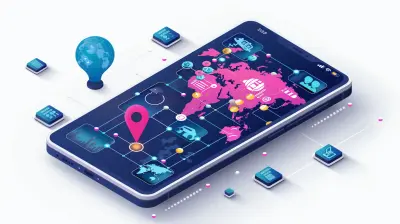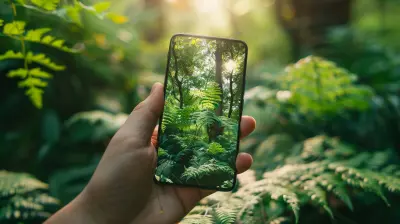The Evolution of Biodegradable Tech: From Concept to Reality
19 May 2025
In a world where technology is advancing faster than ever, there’s one question that keeps coming up: What about the environment? Sure, tech has made our lives easier, faster, and more connected, but it’s also contributing to a growing waste problem. E-waste, to be specific. With millions of gadgets getting discarded every year, the tech world is now staring down a new challenge — sustainability. This is where biodegradable tech comes into play.
But biodegradable tech? Sounds like something out of a sci-fi movie, right? Well, not anymore. The concept is no longer just a futuristic idea; it's becoming a reality. From biodegradable phone cases to transient electronics that disappear after use, the tech world is slowly but surely evolving in the green direction. So, how did this all start? And where is it going?
Let’s dive into the evolution of biodegradable tech, from a far-fetched idea to something that could very well change the future of technology.
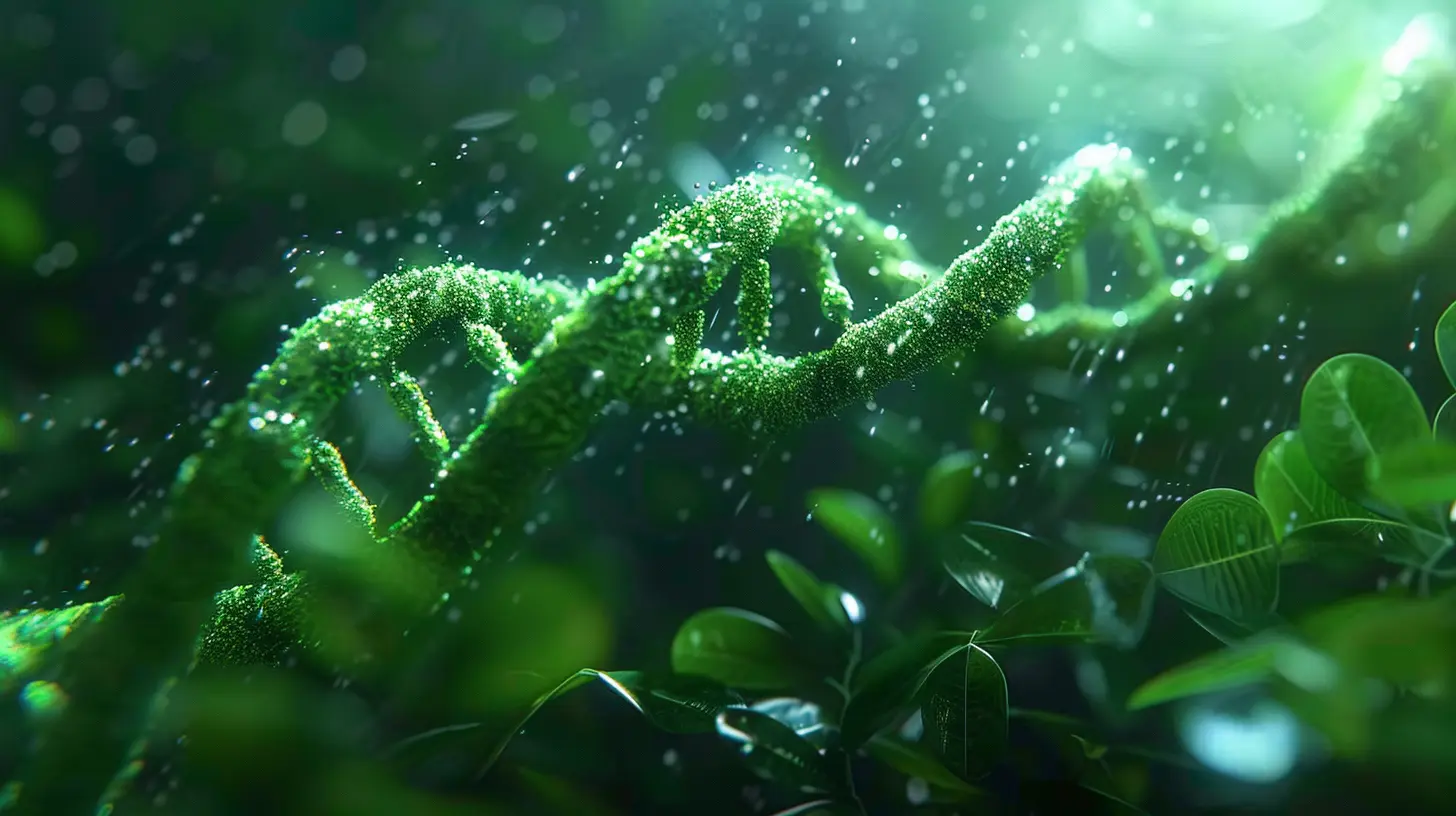
The Origins: A Growing Concern for E-Waste
Before we get into the rise of biodegradable tech, we need to understand the problem it's trying to solve: e-waste. For decades, our obsession with gadgets has resulted in a massive pile-up of electronic waste. Think about all those old phones, laptops, and chargers you’ve tossed aside when the next shiny thing came along. Multiply that by billions of people across the globe and, well, you get the picture. E-waste is a growing environmental nightmare.According to estimates, the world generates around 50 million tons of e-waste every year, and only a fraction of it gets recycled. The rest? It ends up in landfills, where it can leach harmful chemicals into the soil and water. Yikes. Not a pretty picture, right?
The tech industry knew something had to change. While initiatives to boost recycling efforts were a step in the right direction, it quickly became clear that we needed more than just better recycling. That’s when the idea of biodegradable tech began to take shape.
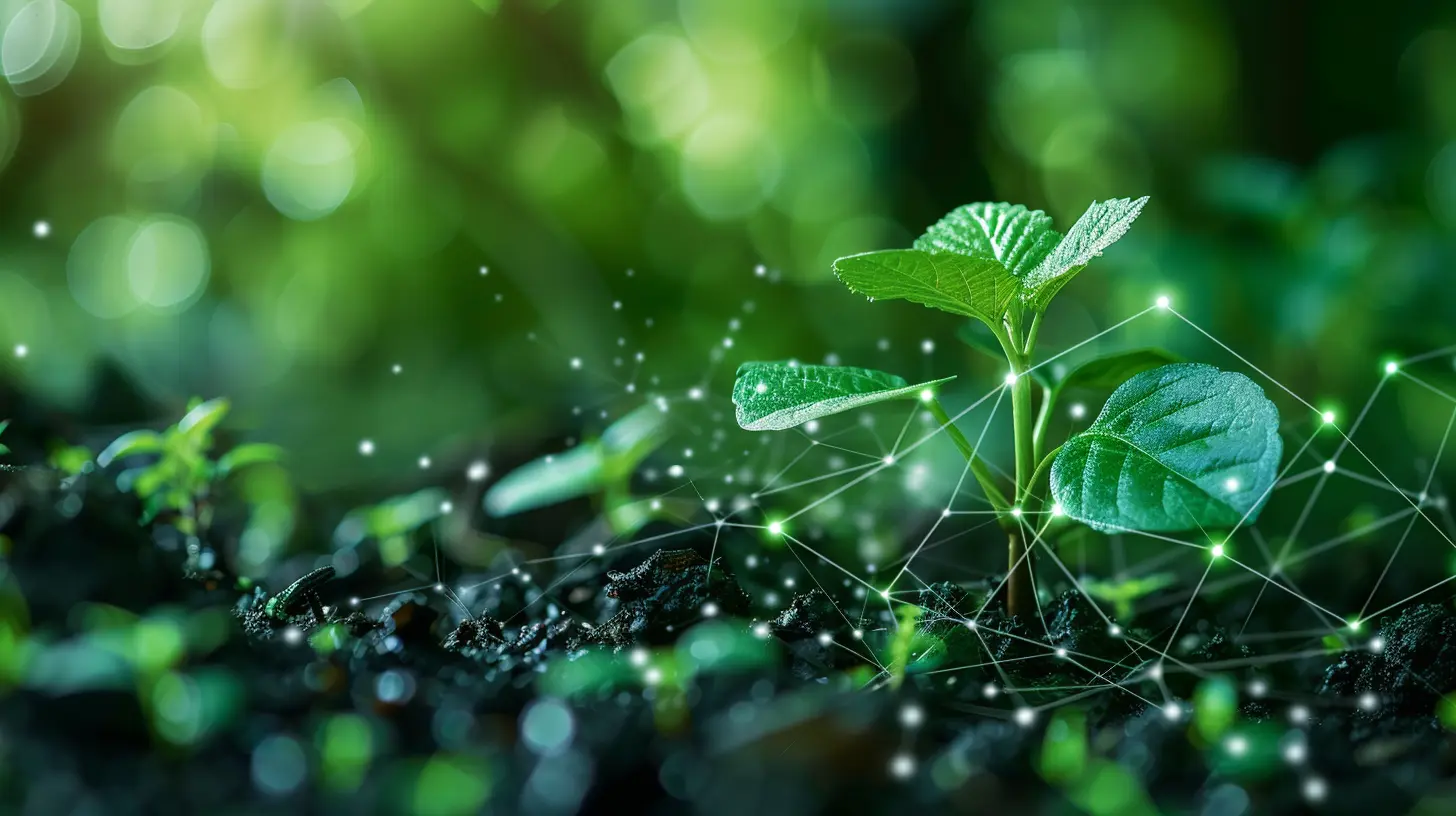
Early Attempts: The Concept of Biodegradable Materials
The concept of biodegradable materials has been around for a while, mostly in the packaging and fashion industries. Things like biodegradable plastics and compostable packaging gave us a glimpse into how everyday materials could safely break down in the environment over time. But tech? That was an entirely different beast.The earliest attempts at creating biodegradable tech products were more experimental than practical. Researchers started exploring materials like polymers, cellulose, and starch-based plastics for use in electronic devices. But there was a huge catch — durability. Tech gadgets need to be sturdy enough to survive daily use, and most biodegradable materials just couldn’t cut it. Imagine if your phone started degrading mid-conversation? Not ideal.
Still, the idea persisted. Scientists and engineers continued to tinker with different materials, gradually improving their strength and durability. The goal? To create tech that could serve its purpose during its lifespan and then safely decompose when it was no longer needed.
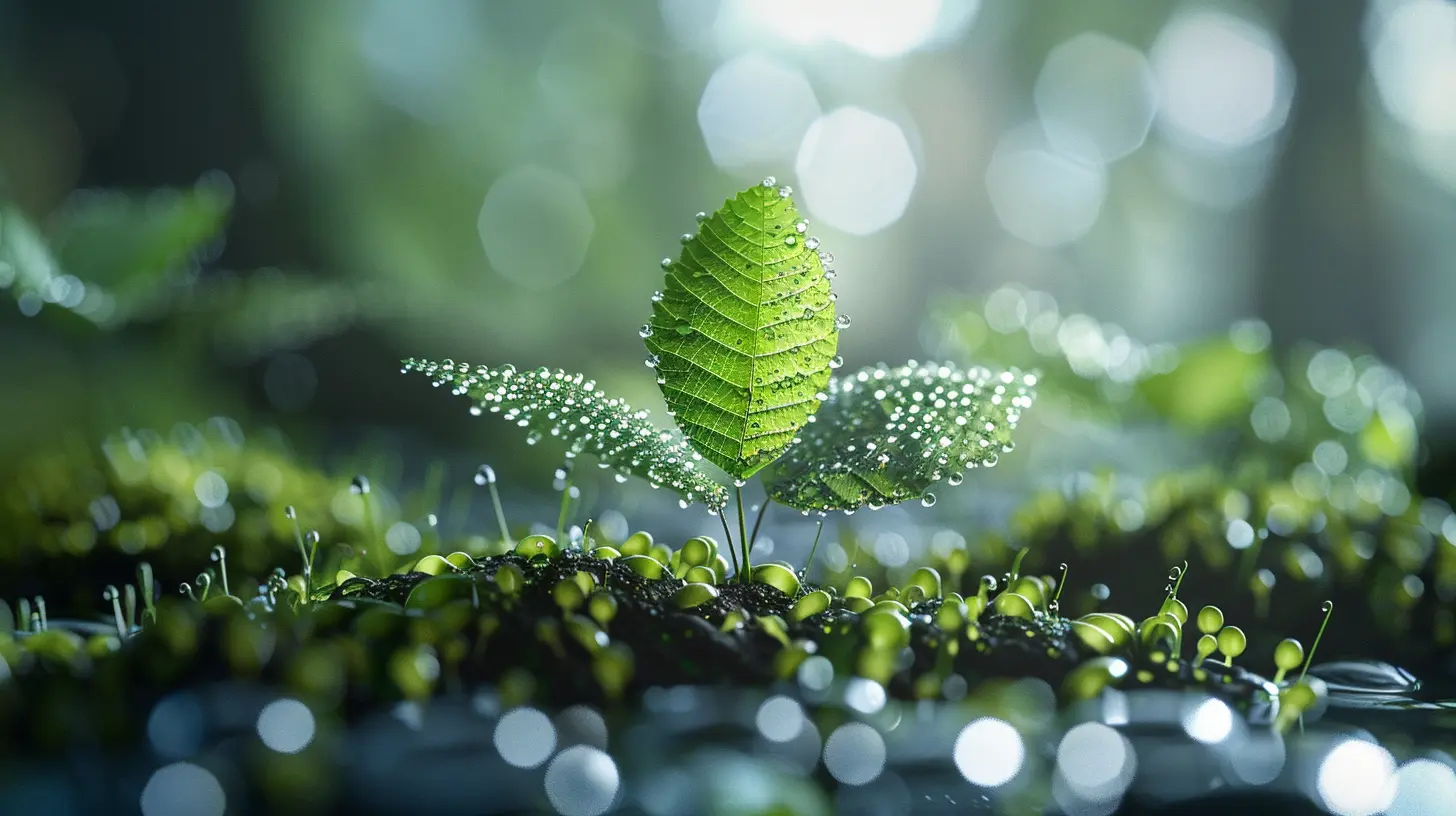
The Turning Point: Innovation in Biodegradable Electronics
The real turning point for biodegradable tech came when researchers began to explore the idea of biodegradable electronics. You see, the problem with most tech isn’t just the plastic casings or packaging — it’s the actual electronic components inside. Traditional electronics are made from materials like silicon, metals, and toxic chemicals that don’t break down in the environment. In fact, they can stick around for centuries.To tackle this, scientists started developing transient electronics — devices that could perform like regular electronics but would degrade over time once they were no longer needed. This was a game-changer. Suddenly, the idea of biodegradable tech wasn’t just about the outer shell; it was about the very heart of the device.
For example, researchers developed silk-based circuits that could dissolve in water, leaving no trace behind. They also experimented with magnesium and other biodegradable metals that could decompose naturally. These innovations opened up a whole new world of possibilities for eco-friendly tech.
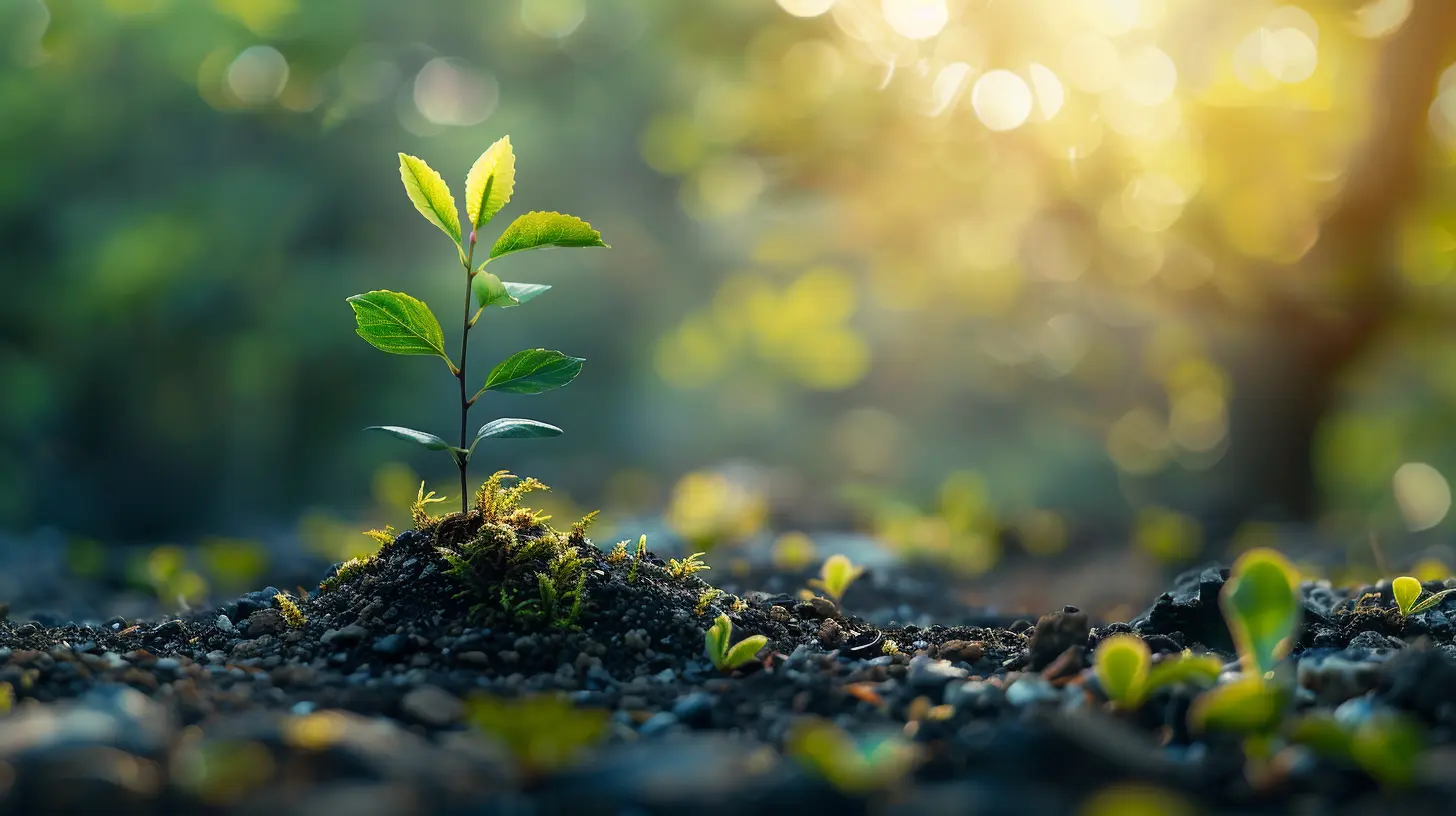
From Lab to Market: Biodegradable Gadgets You Can Buy
So, where does this leave us today? Well, the good news is that biodegradable tech is no longer just a lab experiment. It's beginning to hit the market, and while we're still in the early stages, the progress is promising.Take biodegradable phone cases, for instance. Companies like Pela have created phone cases made from plant-based biopolymers that break down in compost. Unlike traditional plastic cases that could sit in a landfill for hundreds of years, these cases return to the earth in a matter of months. It’s a small step, but it’s one that consumers can easily adopt.
Then there’s biodegradable packaging for tech products. Some companies are ditching plastic packaging in favor of materials like mushroom-based foam or cornstarch packaging. These alternatives are completely compostable and help reduce the environmental footprint of tech products before they even reach the consumer.
But the most exciting innovations are happening in the world of actual devices. We’re starting to see the development of biodegradable sensors and even biodegradable batteries. Imagine a world where your wearables, medical devices, or temporary gadgets could simply disappear when they’re no longer useful. No need to toss them in the trash or worry about recycling — they just fade away.
The Challenges Ahead: What’s Holding Us Back?
Of course, as with any new technology, biodegradable tech isn’t without its challenges. The biggest hurdle is still durability. While great strides have been made in creating biodegradable materials that can stand up to daily use, we’re not quite there yet for all types of devices. High-performance gadgets like smartphones, laptops, and gaming consoles still require robust materials that won’t break down too quickly.Cost is another issue. Biodegradable materials can be more expensive to produce, and until the technology matures, it may not be affordable for most consumers. Right now, biodegradable tech is often seen as a premium offering, which limits its accessibility.
There’s also the question of infrastructure. Even if we create biodegradable tech products, we need the right systems in place to handle them. Composting facilities, for example, are not as widespread as they need to be. And when it comes to electronics, we’ll need to develop new ways to ensure that these devices break down safely without leaving harmful residues behind.
Future Possibilities: What’s Next for Biodegradable Tech?
Despite the challenges, the future of biodegradable tech looks bright. As innovation continues, we can expect to see more and more products moving in a sustainable direction. Here are a few exciting possibilities to look forward to:1. Biodegradable Wearables
Imagine a fitness tracker that helps you monitor your health for a year or two and then, when you’re done with it, it simply biodegrades. We’re not too far off from this reality. Researchers are already working on biodegradable sensors that can be used in medical devices and wearables.2. Eco-Friendly Medical Tech
In the medical world, temporary implants and biodegradable sensors could revolutionize patient care. These devices could monitor your health for a certain period and then safely dissolve in the body, eliminating the need for removal surgery or disposal.3. Sustainable Packaging for All Gadgets
As more companies adopt biodegradable packaging for their tech products, we could see a future where plastic packaging is a thing of the past. Imagine unboxing your latest gadget and knowing that every part of the packaging will return to the earth, guilt-free.4. Biodegradable Batteries
This is a big one. Batteries are one of the most problematic components of e-waste because they contain harmful chemicals that can leach into the environment. But researchers are developing biodegradable batteries made from organic materials like paper and algae. These batteries could power your devices and then safely decompose when they’re no longer needed.5. Transient Electronics
The idea of transient electronics — devices that disappear after use — could have a huge impact on industries like defense, where temporary gadgets are often used. Imagine a world where electronic waste isn’t even a concern because the devices are designed to vanish after their job is done.Conclusion: Towards a Sustainable Tech Future
The evolution of biodegradable tech is an exciting chapter in the story of technology. What started as a far-off concept is now becoming a reality, and while we still have a long way to go, the progress is undeniable. From biodegradable phone cases to electronics that dissolve in water, the tech world is taking steps towards a more sustainable future.But the journey isn’t over yet. As consumers, we have a role to play too. By supporting eco-friendly products and pushing for more sustainable practices, we can help drive the demand for biodegradable tech. After all, technology is here to improve our lives — and with biodegradable tech, we can do that without harming the planet in the process.
all images in this post were generated using AI tools
Category:
Sustainable TechAuthor:

Kira Sanders
Discussion
rate this article
4 comments
Heidi McIlroy
Inspiring progress for sustainability!
June 7, 2025 at 2:37 AM

Kira Sanders
Thank you! I'm glad you found it inspiring!
Rachael McClintock
Turning ideas into eco-friendly innovations—let’s embrace change!
May 31, 2025 at 12:08 PM

Kira Sanders
Thank you for your enthusiasm! Embracing eco-friendly innovations is crucial for a sustainable future. Let's continue to inspire and innovate together!
Halle McDowell
Who knew our gadgets could go green? The only thing biodegradable tech can't compost is my excitement! It's like watching a sci-fi movie where the heroes are made of corn and the villains are just, well, plastic!
May 24, 2025 at 3:32 AM

Kira Sanders
Thank you for your enthusiasm! It's exciting to see how biodegradable tech is transforming our future, turning potential villains into heroes for the planet! 🌱
Amos Torres
This article insightfully traces biodegradable tech's journey, highlighting advancements, challenges, and its potential impact on sustainability in the tech industry.
May 22, 2025 at 12:42 PM

Kira Sanders
Thank you for your thoughtful comment! I'm glad you found the article insightful. Your support for biodegradable tech's journey is greatly appreciated!

